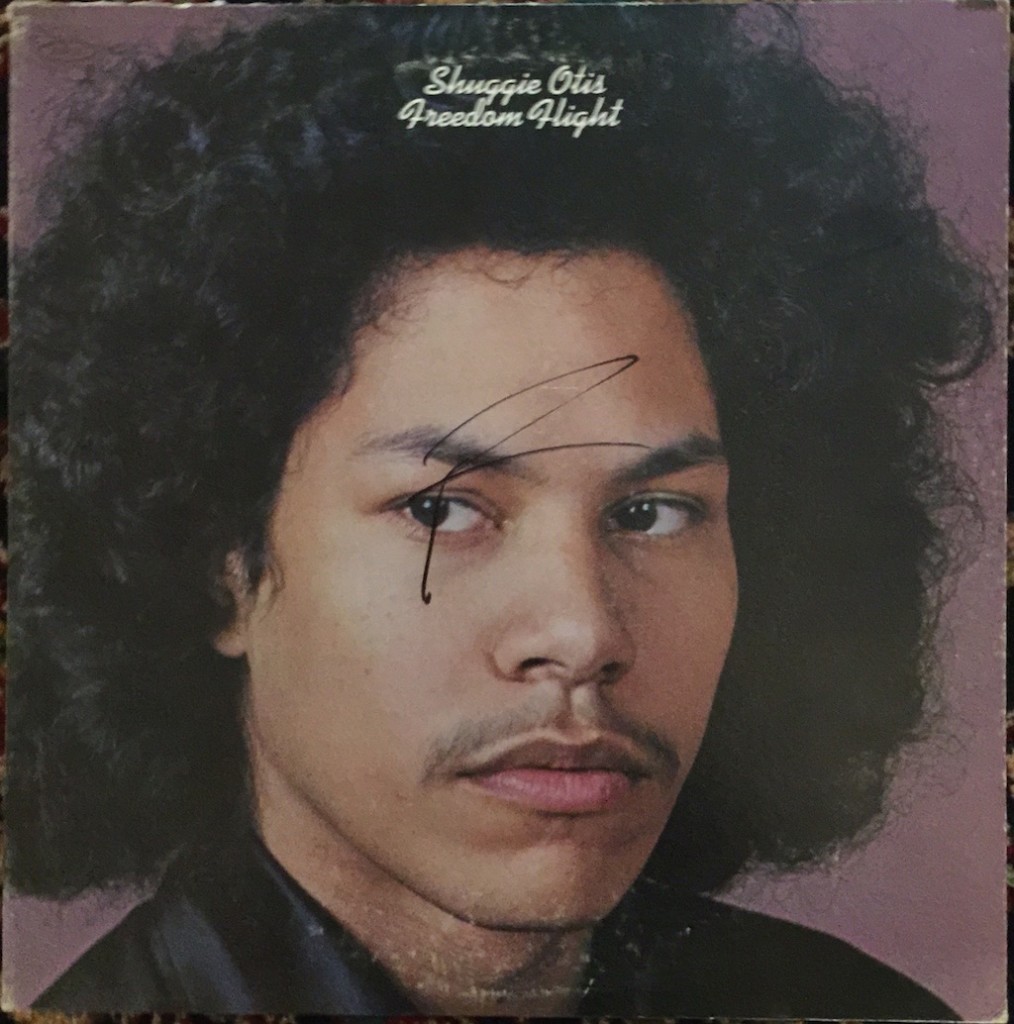
I’ve been meaning to write about this album for a while. It’s a seminal album, but doesn’t fit neatly into one genre; the artist deserves far greater public recognition, both as a writer and performer; the record, which led to one huge radio hit at the time (as covered by The Brothers Johnson), is not on most people’s radar today, though it is a classic. Part of this may be due to the fact that Otis chose to effectively withdraw from the music business for decades (though he did limited session work).
Otis came from R&B “royalty”- his father, Johnny Otis, credited with discovering Etta James, among many others, had a long, fruitful career as a writer, band leader and performer across the decades- from swing, to blues, to R&B.
Whether it was partly in his DNA, or because he grew up surrounded by top-flight players, Shuggie’s second album, Freedom Flight, was a fully developed, artful mix of funk, rhythm and blues and sheer poetry. Although the best known song from the album, “Strawberry Letter #23,” was covered with even greater success by The Brothers Johnson (more about that record below), the album is chock full of other goodies: “Ice Cold Daydream” may have the obligatory “wah-wah,” but it is a slower, bluesy piece of funk and the guitar parts are played “straight” and fast; “Strawberry Letter” is also slower and less upbeat than the famous cover version by The Brothers Johnson, but it’s got the same soulful sweetness; “Sweet Thang” opens with a country guitar twang that repeats as it develops into serious funk of organ, chorus, barrelhouse style piano and a contrapuntal bass line.
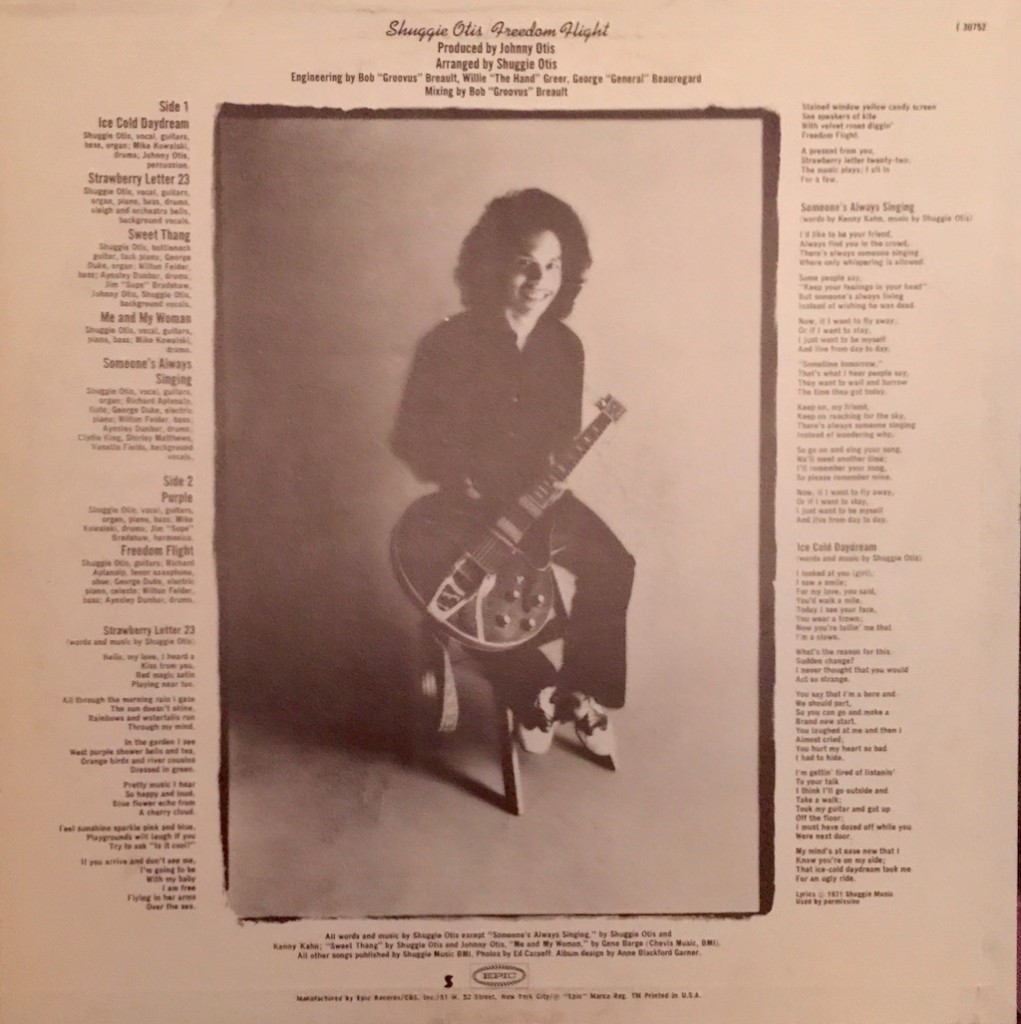
“Me and My Woman” could be pitched as Curtis Mayfield meets B.B.King: it’s a blues, but the guitar work is way funkier than a standard blues and has a beat makes you want to dance, not drink to your sorrows. The guitar solo also borders on psych/country as much as it depends on funk/wah-wah, so it makes for an interesting take. “Someone’s Always Singing” is harder to characterize; the chord changes sound like soul music, but played as a jazz piece, with Shuggie singing a straight-ahead message of love and freedom.
Flip the side to “Purple” and hear classic blues- with a funk- driven bass line that occasionally switches to an almost traditional jazz style bass. The guitar work here is good: soulful, bluesy, with jazzy runs, but it stays within the borders. Finally, the title track, “Freedom Flight,” is almost pure jazz; improvised, introspective and unpredictable; the use of a celeste is an unexpected accent and the drumming is a less jazzy than rock, with lots of tom-tom work, but the song settles into a mellow groove, with an interlude of sax and guitar work that seems inspired by Hendrix at times; it brings you home on an almost psychedelic note.
Otis not only wrote many of these tracks, but also played a range of instruments on them, backed by some serious talent, including George Duke, Wilton Felder and Aynsley Dunbar. The combo itself reflects the diverse underpinnings of the album and its sound.
You can hear strains of funk, rock, classic R&B, elements of blues, country and old school “soul” fused together into something that is none of the above; it transcends its elements. The recording is good too: it is credited to Bob “Grooves” Breault, Willie “The Hand” Greer and George “General” Beauregard, and mixed by Breault. (This isn’t a sonic spectacular, but it is a very solid recording of great music, so buy it for that, and no other reason).
This record is probably best heard on the original yellow Epic release, circa 1971:
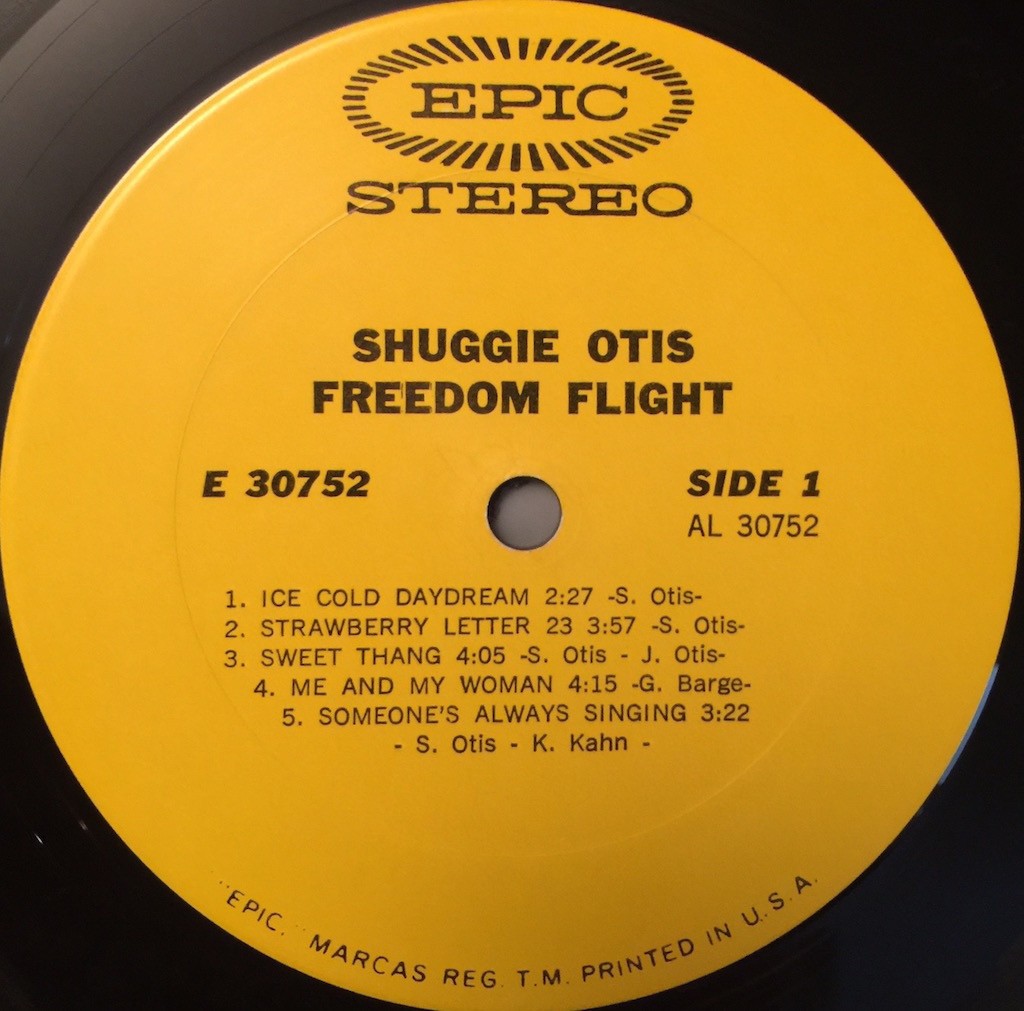
You may think you don’t even know the most famous track from this album, but pull up The Brothers Johnson cover of “Strawberry Letter” and you’ll instantly recognize it: “oh, that song!”
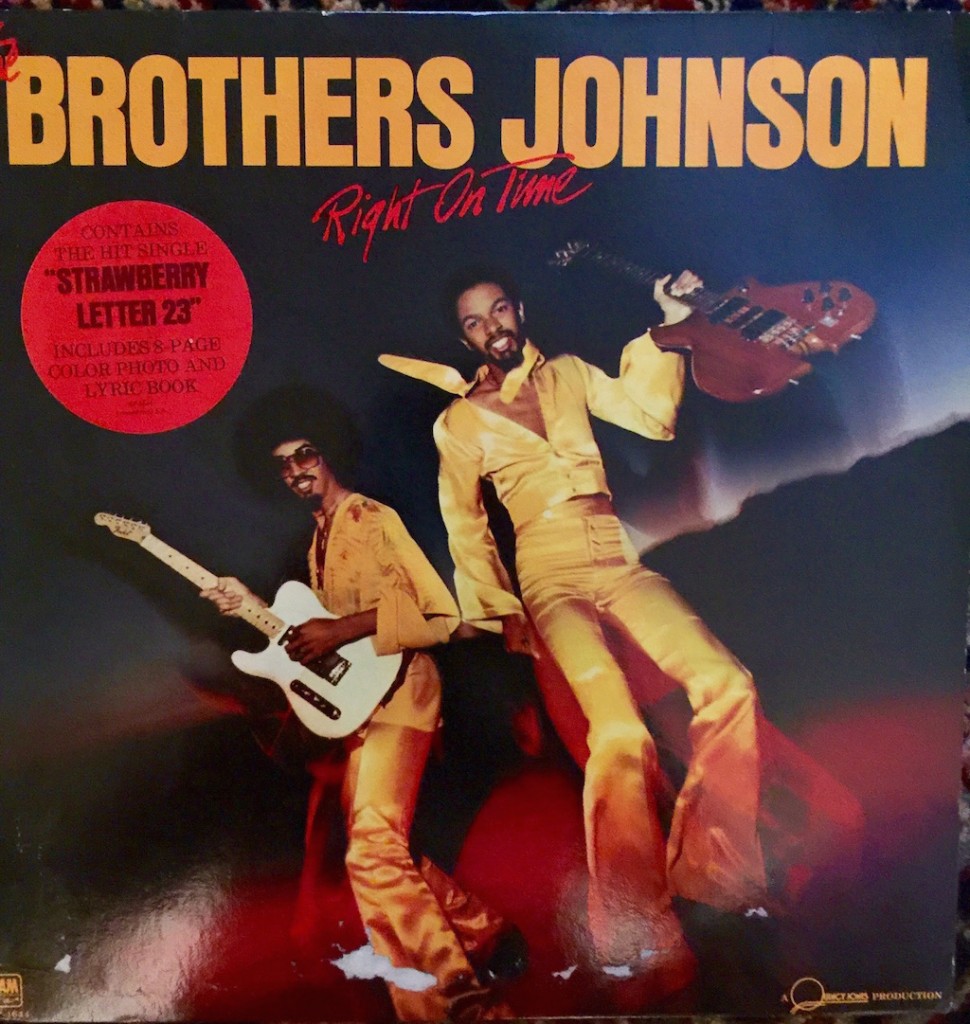
It was a monster hit and remains a period classic of funky soul. Sadly, Louis Johnson recently passed away, but will be remembered for his popping “slap” style bass lines on such huge records as Michael Jackson’s Thriller.
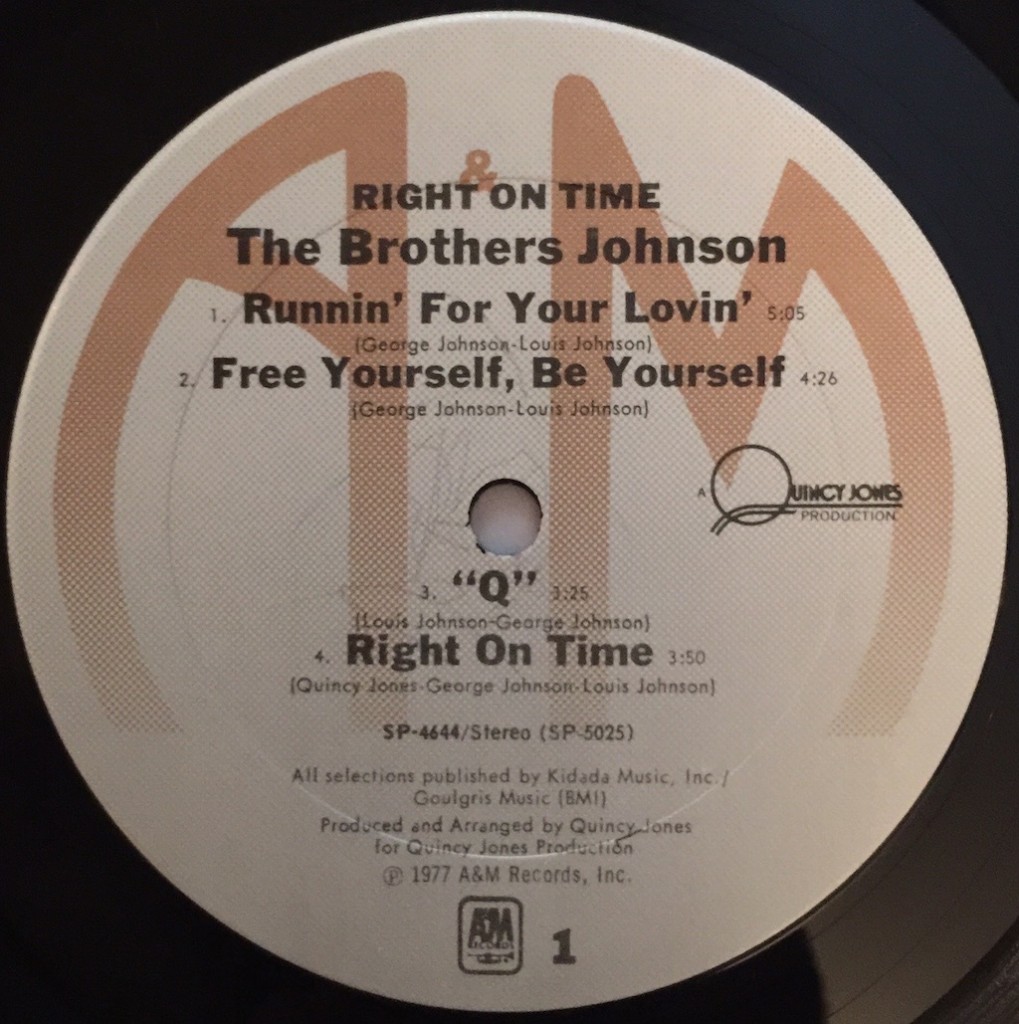
So this is a two-fer. Buy Shuggie’s Freedom Flight, and while you are at it, grab a copy of The Brothers’ Right on Time, which includes the “Strawberry Letter” track.[1] That one was produced by Quincy Jones and has his magic. In some ways, this completes a circle; Johnny Otis, one of the foundational figures of rhythm and blues, with roots in jazz and big band, produced Freedom Flight, and Quincy Jones, legendary jazz man, picked up the mantle of premier R&B producer in succeeding decades.
[1] Right on Time was released on A&M and came with a multi-page color booklet.